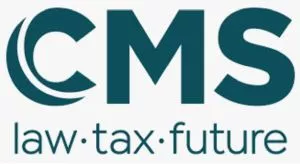On 1 April 2022, the new law of 30 March 2022 on inactive accounts, inactive safe-deposit boxes and unclaimed life-insurance contracts (the “Law”) was published.
The Law sets out three key measures:
- provisions to prevent the inactivity of accounts, safe-deposit boxes as well as of insurance contracts and measures to re-establish contact with clients or their beneficiaries;
- the obligation to transfer assets with the Caisse de Consignation after an extended inactivity period of the accounts, safe-deposit boxes or in the absence of any claims related to insurance benefits arising from insurance contracts; and
- provisions in relation to the restitution of the assets held with the Caisse de Consignation.
The Law enhances the protection of account and safe-deposit boxes holders as well as of beneficiaries of insurance policies by making it easier for them to recover access to their assets.
To prevent the inactivity of accounts, credit institutions must i.a. put in place internal organisational processes to identify and monitor the accounts that are likely to become inactive. They must also establish specific rules to inform and search for the holders of these accounts or, where applicable, their beneficiaries (“ayants-droit”) and to update the information regarding the business relationships. Depending on the amount held on the account, credit institutions must take specific measures at fixed intervals in order to re-establish contact with a relevant account holder.
Similar rules apply to credit institutions when handling inactive safe-deposit boxes and to insurance undertakings regarding the handling of unclaimed insurance contracts.
Where the credit institutions and insurance undertakings (the “Entities”) have not been able to reach a relevant account /safe-deposit box holder or insurance contract beneficiary, they will be required to request the transfer of the relevant assets with the Caisse de Consignation. This will result in the closing of the accounts, of the safe-deposit boxes and the termination of the contractual relationship between the insurance undertaking and the policyholder. The Entities will nonetheless be required to keep all information and documents relating to these accounts, safe-deposit boxes and insurance contracts in order to allow for their restitution, if requested. To this end, the Caisse de Consignation keeps an electronic register of the relevant assets. Any person justifying the existence of a right in relation to the consigned assets may file a restitution request with the Caisse de Consignation.
On an annual basis, the Entities must also inform the Commission de surveillance du secteur financier, respectively the Commissariat aux assurances, on the number of inactive accounts or safe-deposit boxes, unclaimed life-insurance contracts, and on the total amount of assets related thereto.
The content of this article is intended to provide a general guide to the subject matter. Specialist advice should be sought about your specific circumstances.
We operate a free-to-view policy, asking only that you register in order to read all of our content. Please login or register to view the rest of this article.




